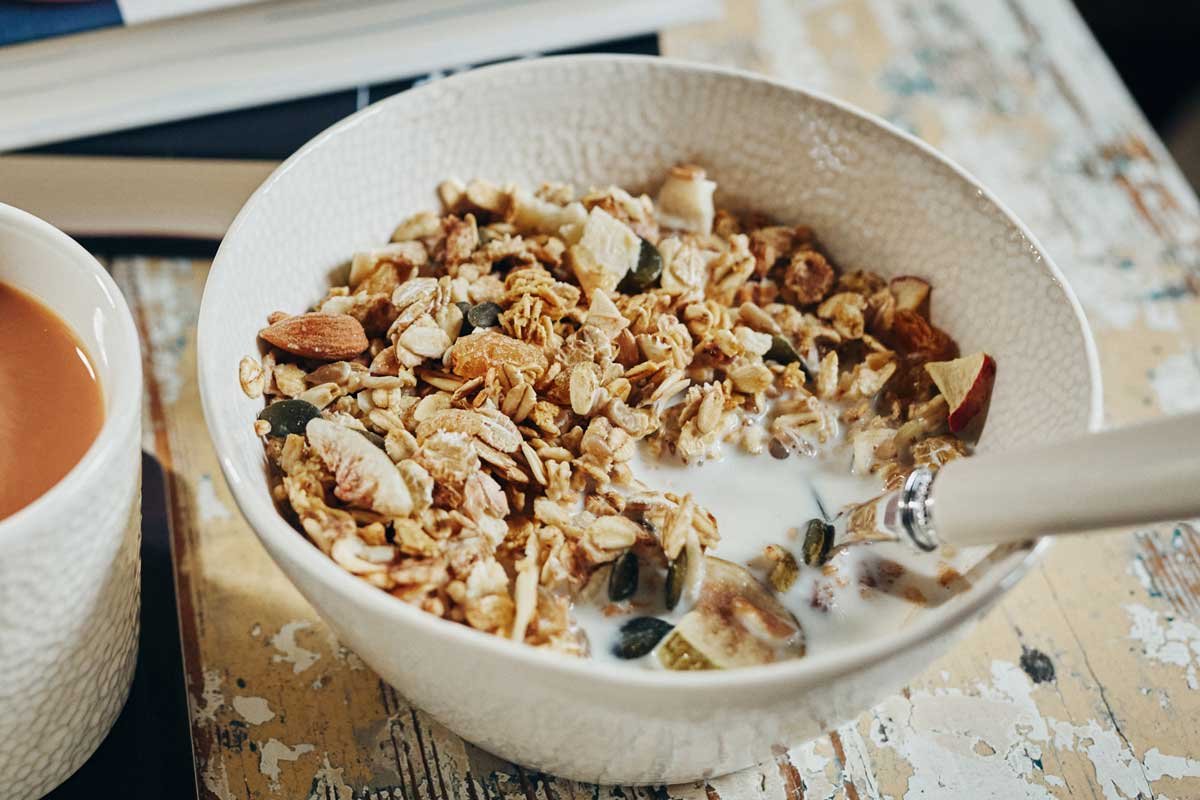LIZI’S GUIDE TO NUTRITION FOR A HEALTHY HEART
Isn’t it time to spread the love and talk about building a healthier heart? We all want to live a healthy, balanced life, and our diets play a big role in achieving that. So let’s take a deeper dive into eating well to help keep our tickers ticking.
First, the basics. One key route to a healthier heart lies in reducing LDL cholesterol – for science lovers, that’s “low-density lipoprotein”, but we can equally just call it “bad” cholesterol – which clogs up arteries. That means choosing food that’s low-LDL and high in soluble fibre of the kind you’ll find in our granola – think oats, barley, beans, aubergine, okra, nuts, and fruit rich in pectin such as apples, grapes, strawberries and citrus fruits.
Go with your gut
We know about the benefits of fibre for our gut, but how is it linked to the heart? There is evidence that fibre can nourish friendly gut bacteria, which can lower cholesterol and improve heart health, but the main reason is a lot more simple: being overweight is bad for the heart and people who eat more fibre have lower body weight, lower blood pressure and lower cholesterol. Fibre helps you feel full and that prevents overeating, while some soluble fibres help delay absorption in the gut of sugar and fats, including cholesterol.
And the benefits don’t stop with just getting more fibre. The foods you eat for your heart make for an overall healthier diet, increasing your daily doses of vitamins, minerals and antioxidants.
Plant potty
Once you’ve factored fibre into your regular eating habits, start to think about plant sterols and stanols, which also reduce the absorption of bad cholesterol. These are natural plant substances that can be found in milk and yoghurt, and there is evidence that consuming just two grams a day of sterol and stanol-rich foods help can reduce LDL cholesterol by up 15 per cent.
No sugarcoating this…
Finally, parting is such sweet sorrow but it’s time to say goodbye to – or at least eat a lot less of – sugary foods such as cakes, biscuits, chocolate and soft drinks. Yes, they can provide an energy hit but cutting them out or cutting down can maintain a healthy weight that reduces the risk of heart disease. Look for alternatives with less sugar, and aim for less than 30g of sugar a day, whatever you’re eating.
Bigger picture
Of course, diet is just one part of the solution when it comes to heart health. It’s important to understand your risk factors, recognise the signs of heart disease and heart attacks (which can be different for women and men), make sure you’re getting enough exercise and – it almost goes without saying – avoid smoking.
With more attention to what goes into our bodies this year, we can feel better, more energised and really show our hearts a little love.


